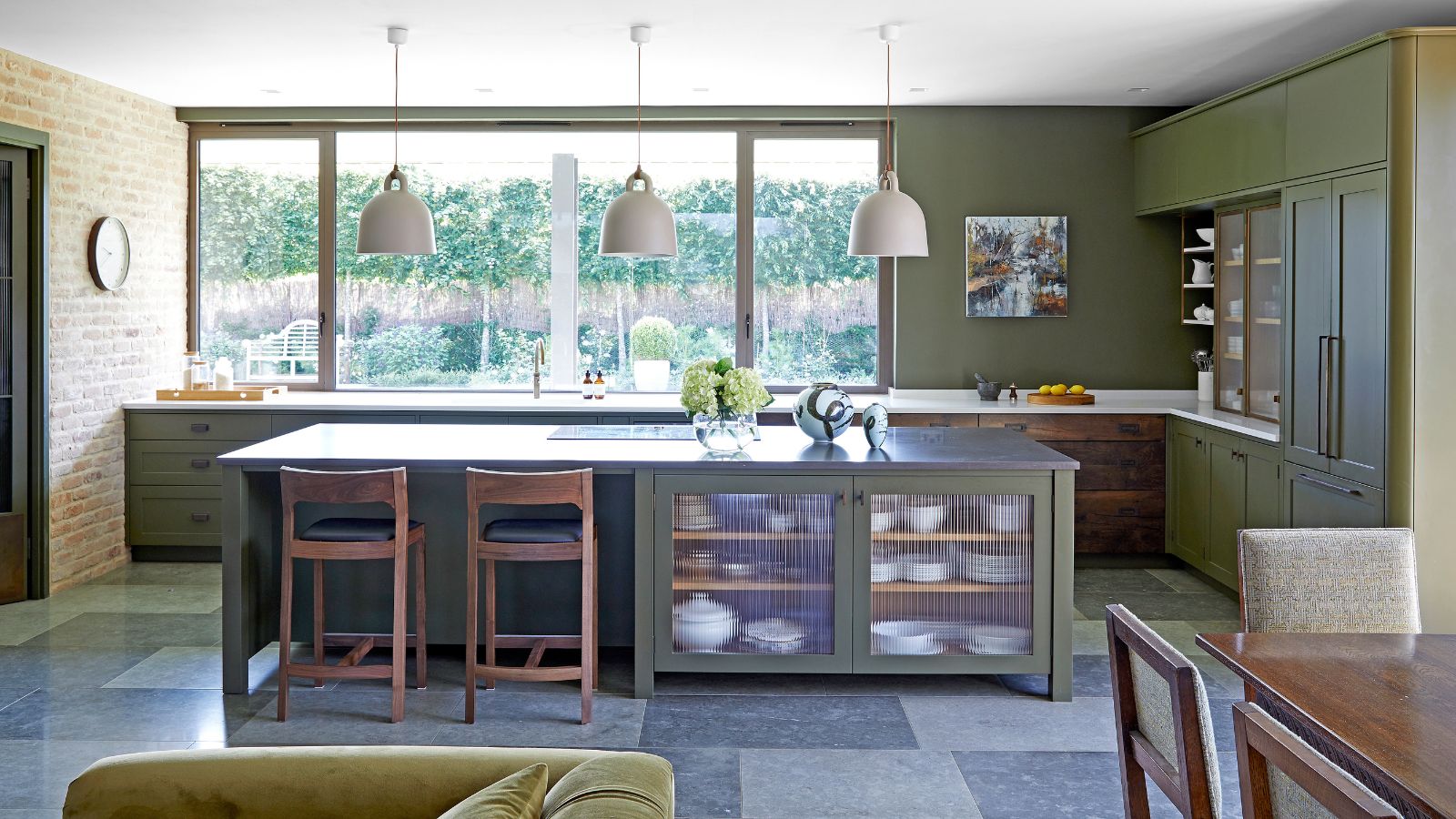What should you do with your kitchen or bathroom renovation waste?
Learn how to treat renovation waste by reading our expert guide


Renovating your kitchen or bathroom can be an exciting and rewarding experience. From wanting to give these rooms a facelift to seeing them as renovation projects that will add value to your home, renovating your kitchen and bathroom is a great way to transform your home with a new look and feel.
However, renovating also comes with the challenge of dealing with the waste generated during the process. Whether it's old cabinets, tiles, fixtures, or appliances, you may find yourself wondering what to do with all the renovation waste. Navigating the aftermath of a kitchen or bathroom renovation involves more than just discarding materials – it's about finding sustainable solutions that benefit both your project and the environment.
Whilst you can always rely on professionals to remove the waste for you, it may be worth looking at yourself so you can best decide what to do with it and salvage any bits you may want to use for future renovation ideas.
What should you do with your kitchen or bathroom renovation waste?
Renovation waste can be a headache, but with a bit of planning, it becomes manageable. The key is to think about waste handling before you even start your project. Here are some tips:
1. Separate and Sort
According to kitchen and bathroom renovation expert Rick Berres, the first step you should take is to sort your renovation waste into different categories: recyclables, reusables, and trash, as this makes the disposal process a lot easier.
‘Imagine you've just finished installing new cabinets in your kitchen,’ says Rick. ‘You’ll have leftover wood, old cabinet pieces, and packaging materials. Separate the wood for potential reuse or recycling, and set aside the old cabinet pieces if they're still in good shape.’
For small bits of renovation waste, you can sort them with a multi-compartment trash can such as the Home Zone Living 15.8 Gallon Kitchen Trash Can from Amazon. This trash can has dual compartment bins which allow you to separate the waste at home.
Design expertise in your inbox – from inspiring decorating ideas and beautiful celebrity homes to practical gardening advice and shopping round-ups.

Rick has been operating Honey-Doers out of Lakeville, MN for nearly 18 years and continues to build upon its growing number of satisfied customers and reputable work. As the company has grown and evolved, so too have the needs of their customers.
2. Donate What You Can
Not all renovation waste is destined for the dump. Many organizations and charities will gladly take usable materials off your hands. Habitat for Humanity's ReStores, for instance, accept gently used building materials, appliances, and furniture. Those old cabinets you replaced? Consider donating them.
What might be trash to you could be treasure for someone else. It's eco-friendly and will help your local community, especially those in need of quality home improvements.
3. Recycle
Many materials from your renovation can be recycled – wood, metal, glass, and certain plastics. Check with your local recycling center to see what they accept. If after gutting your bathroom, you're left with an old metal sink and a glass shower door, both can be taken to a recycling center. It's worth the trip to reduce landfill waste.
Most municipalities also provide a collection service for renovation waste. Put out your recyclables separately from the rest of your trash. Metal scraps, the tile glass out of the tiling, and some plastics all go to recycling centers.
4. Repurpose
Get creative with your leftovers. Sometimes, materials from your renovation can find new life in other projects around your home. Leftover tiles from your bathroom remodel? They could make a unique tabletop or a decorative garden path.
Wood from cabinets or old floors can be repurposed into reclaimed wood features like outdoor furniture or decorative items. Upcycle your leftover materials. Upcycling can save money on additional materials and add atmosphere and one-of-a-kind elements to your decor.
There are a few things from the renovation waste that you can work with if you like repurposing things. The possibilities are there. You just need to be judicious in using these reclaimed items to make sure they don’t clash with the overall style of your home. And of course, always put your safety first when working with these materials by wearing protective gear such as DEWALT safety goggles from Amazon or work gloves from Walmart.
5. Proper Disposal
For the waste that can't be donated, recycled, or repurposed, ensure proper disposal. Renting a dumpster can be a convenient option for larger projects.
‘For hazardous waste like lead paint or asbestos, it's essential to follow local regulations and guidelines for safe handling and disposal,’ says home improvement expert Tommy Mello. ‘Many municipalities offer dedicated hazardous waste collection events or designated drop-off locations to ensure these materials are disposed of properly.’
Just be sure to follow your local guidelines for disposal. After a major kitchen or bathroom renovation, you may be left with a pile of drywall and broken tiles. Some waste companies even offer specific bins for construction materials.

Tommy Mello is an entrepreneur, a home service/DIY expert, and the founder of A1 Garage Door Service, a leader in the home service industry. Founded in 2007, A1 Garage Door Service has grown to be a leader in the home-service industry.
FAQs
What are the 5 R's of waste management?
If you are looking to improve how you dispose of your household waste, try the 5 R’s.
Refuse: Try to limit your use of single-use plastics or non-recyclable products.
Reduce: Reduce your dependency on harmful, wasteful, and non-recyclable materials to save you money and help the environment.
Reuse: Try to replace all the single-use plastics such as cups, and straws, for compostable and reusable options.
Repurpose: If you are unable to do the first 3 R’s, try repurposing instead. You will quite often be surprised to learn how many everyday objects in the office can serve more than one purpose.
Recycle: Recycling is the most eco-friendly waste disposal method. You can start recycling by compiling cardboard, paper products, plastics, glass, and organics.

Seraphina is a contributing editor at Homes & Gardens, writing Solved features on organizing and storage. She loves to decorate and also grow her own produce from her home in London. Her previous experience includes working at Women's Health and Fabulous Magazine.